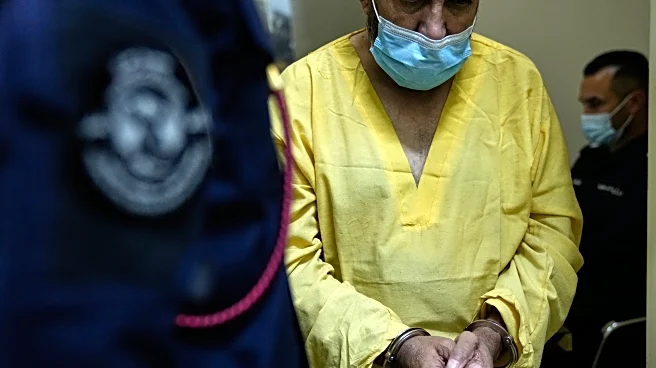What is the story about?
What's Happening?
Kraig Biocraft Laboratories, Inc., a leader in spider silk technology, has announced a significant advancement in its recombinant spider silk production platform. The company has developed a new hybrid strain, BAM-1 Alpha, which has demonstrated a 22% increase in cocoon shell weight, marking a 245% improvement in hybrid vigor compared to its predecessor, BAM-1. This development is the result of selective breeding of parental strains, aimed at enhancing hybrid vigor and increasing silk output. The BAM-1 Alpha is set to become the company's production workhorse, contributing to larger cocoon sizes and more silk production, thereby reducing costs.
Why It's Important?
The advancement in spider silk production by Kraig Biocraft Laboratories holds significant implications for various industries, including textiles, defense, medical, and industrial markets. Spider silk is known for its superior strength and flexibility, making it a valuable material for high-performance applications. The increased production throughput and reduced costs associated with the BAM-1 Alpha hybrid could lead to broader commercial adoption and integration of spider silk fibers. This development underscores Kraig Labs' commitment to innovation and its leadership in bioengineered materials, potentially setting new standards in material science and production efficiency.
What's Next?
With the BAM-1 Alpha moving into commercial deployment, Kraig Labs plans to leverage its multi-facility production infrastructure to integrate this enhanced hybrid into ongoing manufacturing processes. The company aims to expand its market presence by delivering high-performance spider silk fibers to various sectors. As Kraig Labs continues to innovate, stakeholders in the textile and related industries may anticipate further advancements and potential collaborations. The company's focus on scalability and performance could drive future growth and establish new benchmarks in the production of bioengineered materials.
Beyond the Headlines
The development of the BAM-1 Alpha hybrid by Kraig Biocraft Laboratories highlights the ethical and environmental dimensions of biotechnology. The use of genetically engineered organisms raises questions about sustainability and ecological impact. As Kraig Labs advances its spider silk technology, it may face scrutiny regarding the long-term effects of its production methods. Additionally, the success of this technology could influence cultural perceptions of bioengineering and its role in addressing material shortages and enhancing product performance.
















